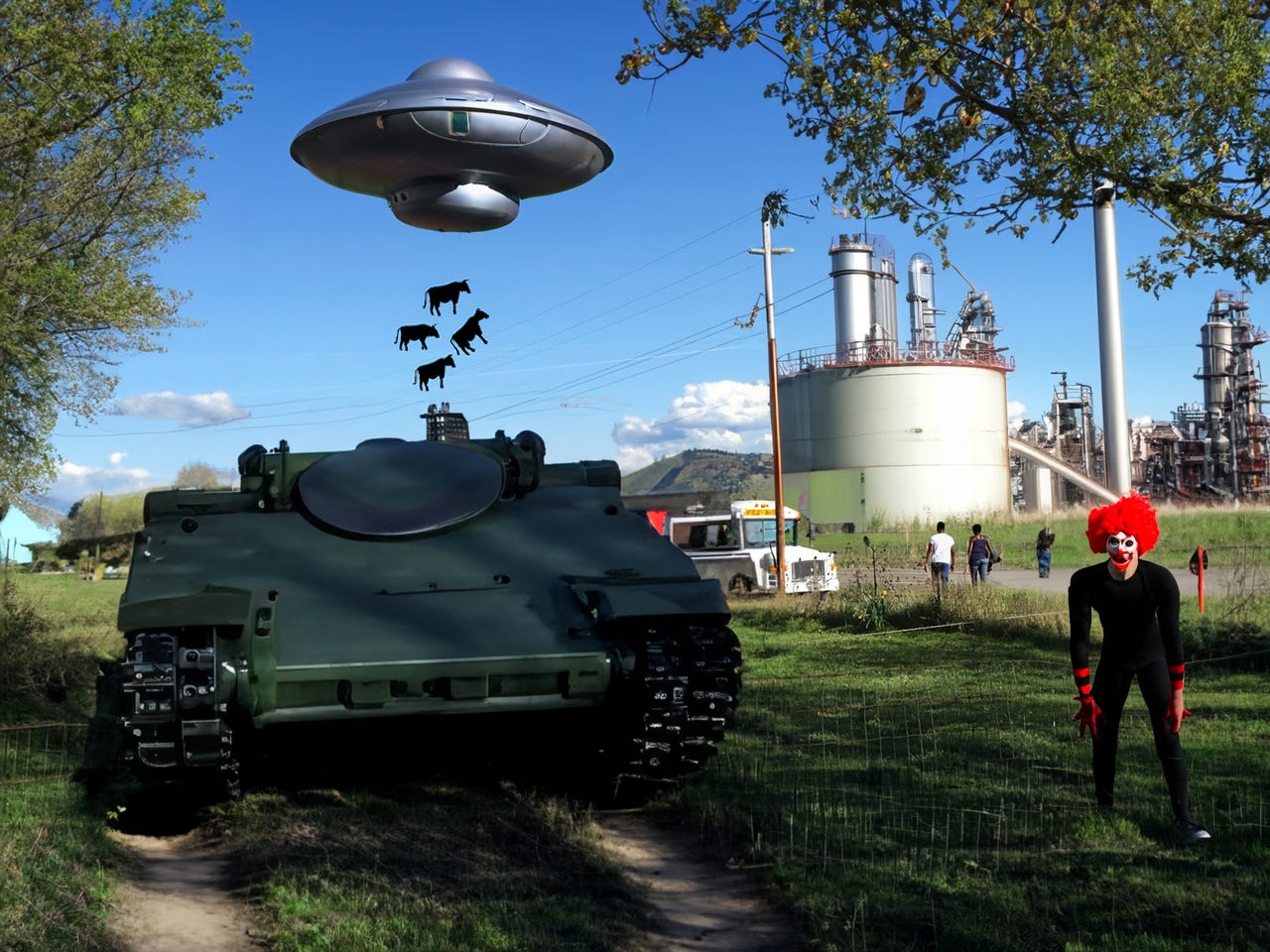
We'll use AI to build up this image element by element. It is, quite simply, a masterpiece of art and design, extraordinarily culturally relevant, somewhat cheeky, and philosophically deep, providing life-changing inspiration to all who view and contemplate its many nuances.
When it comes to generative AI that produces images, there seem to be two main approaches. Tools like Midjourney and Stable Diffusion create entire images based on AI prompts (although they can, with mixed results, sometimes incorporate an existing image into their scene). Adobe Photoshop is pioneering the second approach: Adding an image and fitting it into an existing scene.
Also: These 3 AI tools made my two-minute how-to video way more fun and engaging
As we've discussed previously, Adobe Photoshop has a beta out that adds a powerful feature it calls Generative Fill. I've been exploring this tool for a while, and have had way more fun with it than seems appropriate for a serious technology like AI. Let me demonstrate.
The tools we're going to use
To create our glorious demo image, I used exactly two Photoshop tools. The first is the Lasso tool. This draws a freehand shape on the screen that specifies a selection.
The second tool is the Generative Fill bar. In the new Photoshop beta, this bar shows up whenever you have a new selection. Clicking the button with no text prompt will invoke the AI to fill out what it thinks will look best to complete the selection.
Adding some text as a prompt will instruct the AI, challenging it to create an element of the image as described in the prompt.
How to use Photoshop's AI Generative Fill
Some thoughts
Adobe claims all images are derived from Adobe stock images, which is why the variety isn't as good as with Midjourney. That said, you know you're in safe licensing territory if you build something with Photoshop's Generative Fill, where you don't really know if the image you created in Midjourney was built from some other image its creators found on the internet.
Also: Six skills you need to become an AI prompt engineer
The AI is weirdly fussy about what it will and will not create. Expect to spend some serious time trying multiple generation runs and multiple prompts.
And, finally, as I said before, pay attention to exactly how you size and place your selection. That tells the AI a tremendous amount about your intentions for the images you're asking it to create.
And with that, I'm done. Have you used the Photoshop beta and tried out Generative Fill? Let us know in the comments below. Also, if you feel called to compliment my artistic genius, the comments are there for you to heap your praise on my creation. Finally, if you curate fine art in the Louvre or the Met and you want to contact me for permission to display this great work, you can contact me via ZDNET or my socials.
Also: How to use YouChat as an AI chatbot and search tool
Seriously, though. I think you can probably see how Generative Fill might be a really big help to those using Photoshop who need to add elements. While this image was firmly for fun, I'll be back in future weeks looking at how to use this tool for a more professional result. Stay tuned.
Disclaimer: Using AI-generated images could lead to copyright violations, so people should be cautious if they're using the images for commercial purposes.
You can follow my day-to-day project updates on social media. Be sure to follow me on Twitter at @DavidGewirtz, on Facebook at Facebook.com/DavidGewirtz, on Instagram at Instagram.com/DavidGewirtz, and on YouTube at YouTube.com/DavidGewirtzTV.